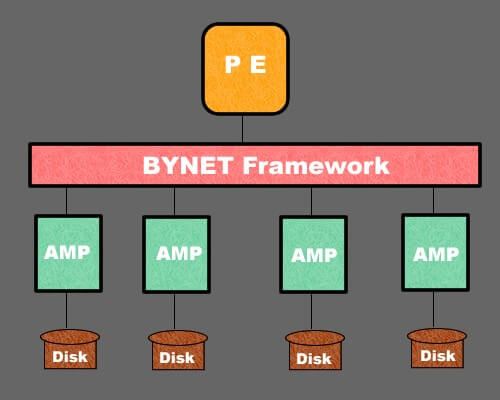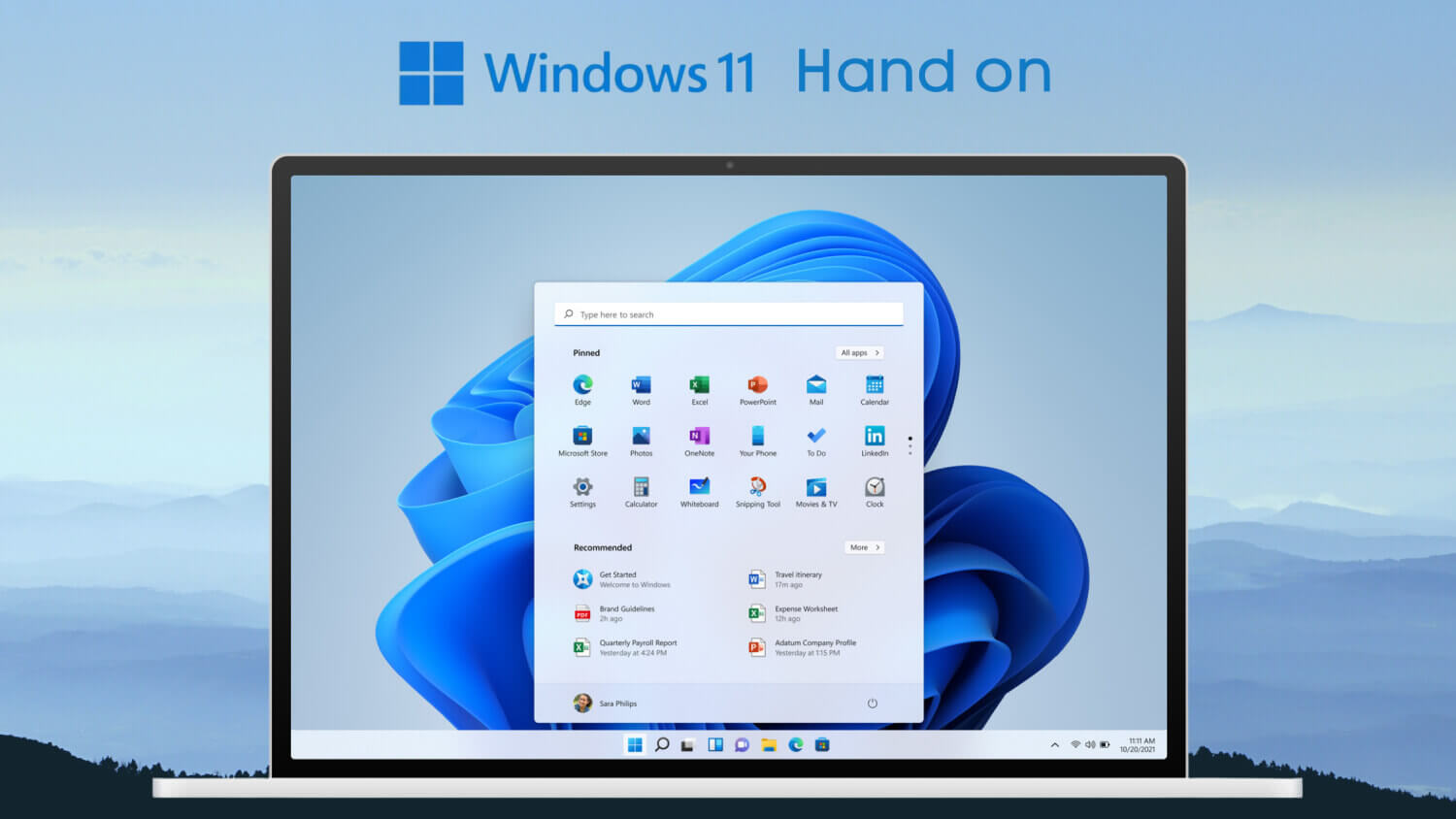Teradata

-
Teradata is an enterprise software company that develops and sells a relational database management system(RDBMS) with the same name.
-
The Teradata product is referred to as a "data warehouse system" and stores and manages data.
-
The data warehouses use a "shared nothing" architecture, which means that each server node has its own memory and processing power.
-
Adding more servers and nodes increases the amount of data that can be stored.
It Consists:
-
PE- A Parsing Engine is a virtual processor (vproc)
-
AMP- Access Module Processor
-
BYNET-Banyan Network
-
Disk- Storage location
It Consists:
-
The PE checks the syntax of the query, check the user security rights
-
Then PE come up with the best optimized plan for the execution of the query
-
The PE passes this plan through BYNET to AMPs.
-
The AMPs follow the plan and retrieve the data from its DISK.
-
Then AMPs passes the data to PE through BYNET.
-
The PE then passes the data to the user.
Teradata Database Capabilities:
-
Storage Capacity: Scaling from gigabytes to terabytes to petabytes
-
Storage Capacity: Scaling from gigabytes to terabytes to petabytes
-
Parallel processing: Makes Teradata database faster than other relational databases
-
Single data store: Can be accessed by workstation-attached and mainframe-attached
-
Fault Tolerance: Automatically detects and recovers from hardware failures
-
Data Integrity: Ensures that transactions either gets complete or rollback to consistent state if fault occurs
-
Scalable growth: Allows expansion without sacrificing performance
Features of Teradata:
-
Mutivalue Compression: Can compress data at column level using multi value compression
-
Volatile Tables: Volatile table gets dropped after current session
-
eradata Columnar: This unique implementation has ability to partition a table or join index by column
-
Teradata QueryGrid: It offers bi-directional data movement and pushdown processing to open source like Hadoop
Latest Blog

What are Progressive Web Apps (PWAs)

Apple Event September 2021 Recap

Windows 11 hands-on: Here's Everything You Need to Know About Microsoft's Latest Operating System

YouTube Shorts - Things You Should Know

8 New Features of Android 12 You Didn’t Know

Android 10: Top feature you need to know!
Akshay Gangwar
50 mins ago

Temperature & Humidity IOT Solutions for Food, Agriculture and Medical Industry
Akshay Gangwar
50 mins ago

HTC Reportedly Planning to Re-enter Indian Market in August
Akshay Gangwar
50 mins ago

Apple OS X Server: File Transfer Protocol
Akshay Gangwar
50 mins ago

